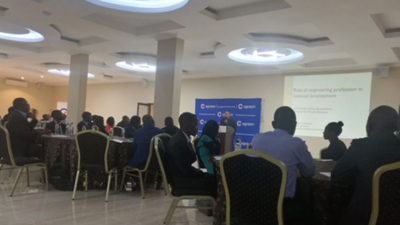
Energy experts have called for serious investment in energy and infrastructure, if the country is to register significant growth in the sectors in the short to medium- term.
Speaking on the sidelines of the 2018 Malawi Polytechnic Engineering Symposium in Blantyre on Friday, dean of engineering at the institution, Gregory Gamula, said the country is still facing challenges in the energy sector because it has not been prioritised.

He said: “We are still facing challenges because we need to put [these sectors] as high priority areas because it means that we are going to invest heavily and develop these areas and later reap the fruits. In the next five years, if we can be serious with ventures and plans, we can see ourselves getting out of the challenges we have and moving in direction to become self-sufficient.
“Unfortunately, at the moment, we are not making satisfactory investments.”
In his presentation, The Polytechnic senior lecturer in the Mechanical Engineering Department Kenneth Gondwe said despite having natural resources, Malawi still has energy poverty and dilapidated infrastructure and declining production capacity.
He said strategic goals such as Malawi Growth and Development Strategy (MGDS III), Sustainable Development Goals (SDGs) and Vision 2020 need proper execution if the country is to attain the outlined desired goals.
Earlier, the Ministry of Finance, Economic Planning and Development expressed optimism on the implementation of the MGDS III owing to funding from government and donors.
Secretary to the Treasury Ben Botolo is on record as having said government intends to finance MGDS III through revenue generated from domestic sources which will be complemented with resources generated through concessional borrowing.
He said Treasury is also banking on the private sector involvement in financing of flagship projects through the Public Private Partnership (PPP) arrangement.
The Malawi Government has identified five key priority areas in MGDS III which could spur economic growth due to their impact and interconnectedness to other sectors of the economy.
The five key priority areas were chosen on the basis of their alignment to the SDGs, the goals of African Union Agenda 2063, focusing on Malawi’s economic and development needs.
The priority areas include agriculture, infrastructure, education, energy and other allied sectors.
Government has also identified flagship projects from the key priority areas which will be targeted for implementation in the next five years to capitalise on the available resources during the implementation period.
Electricity Generation Company of Malawi (Egenco) chief executive officer William Liabunya said on Friday that the country needs increased capacity generation to address the current challenges in power outages. n
